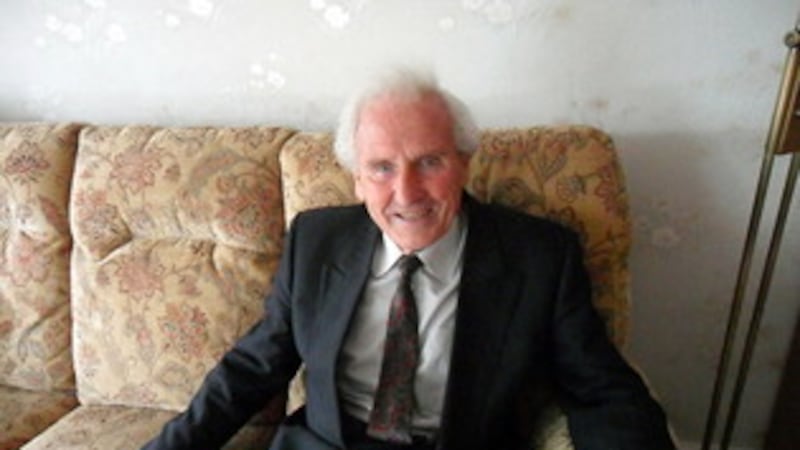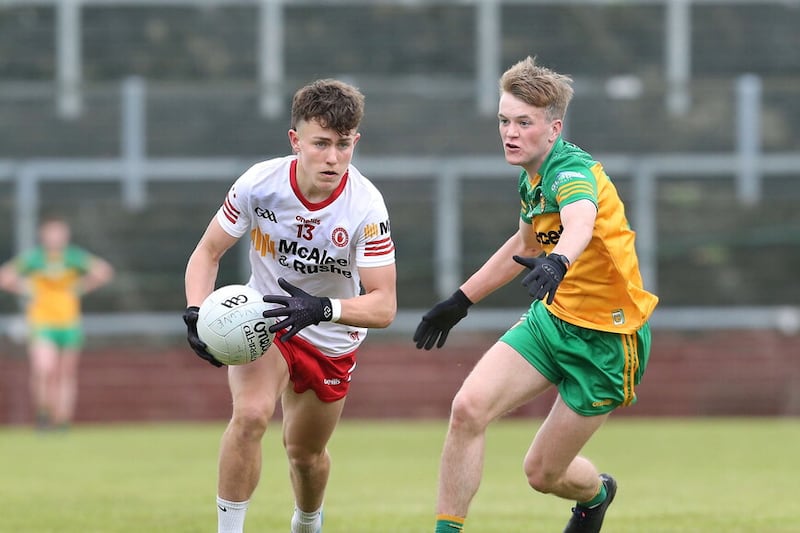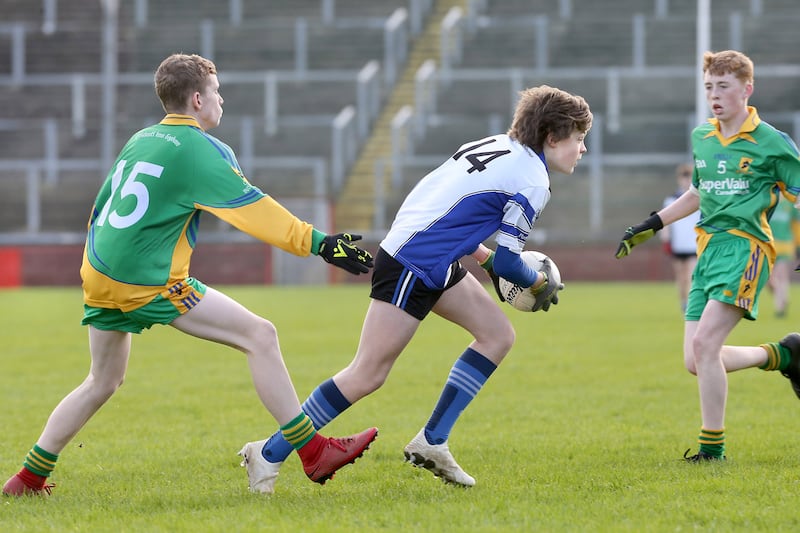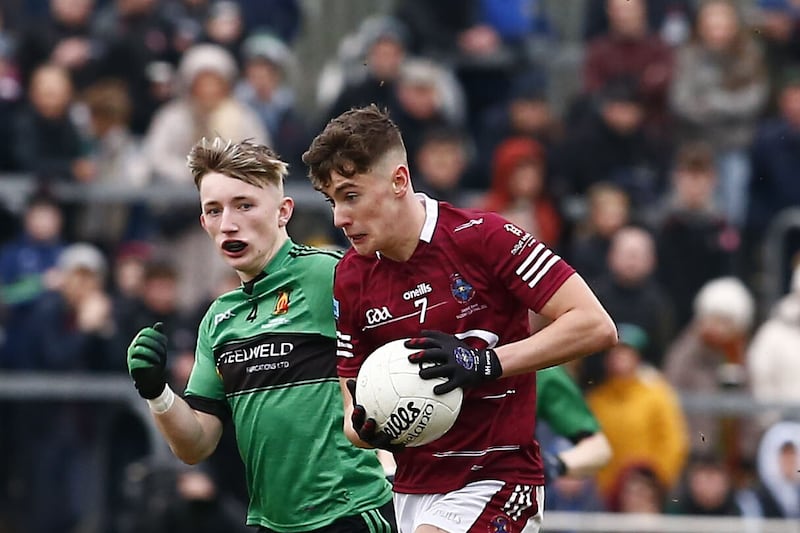DR Pat O’Neill holds a unique place in the story of the MacRory Cup.
Keady-born, he captained the St Patrick’s College, Armagh side that won the MacRory Cup in 1946 and then went on to become the first winners of the newly-formed Hogan Cup.
Thus, when he ascended the steps of the Hogan Stand to receive the Brother Hogan Cup from Fr Manning, chairman of the Colleges’ Council on Sunday, May 5, 1946, Pat O’Neill had enshrined his place in colleges’ football history.
The mid-1940’s witnessed an Armagh four in a row (1944-’47) in the MacRory Cup.
Pat O’Neill was a sub on the ’44 side, played in ’45 and captained the ’46 team that outclassed St Mary’s College, Dundalk in the final.
It was a busy year for O’Neill, as a few weeks later he went on to captain Ulster in the colleges’ inter-provincial semi-final defeat to Leinster.
Despite this setback, the focus turned to Armagh’s participation in the newly-formed competition for provincial winning colleges.
This had been established in memory of Brother Thomas Wilfrid Hogan, a member of the Congregation of the Irish Christian Brothers.
An ardent promoter of Gaelic games, the Irish language and Irish history, his untimely death at the age of 43 impelled the Central Colleges’ Council to recognise his life’s work in donating a cup to be played in his honour.
A Tipperary man, he belonged to a family deeply involved in hurling, football and the struggle for Irish independence.
His brother Michael was a member of the Tipperary football team that played against Dublin in Croke Park on Sunday, November 21, 1920 in a challenge match to raise money for the Irish Republican Prisoners Fund.
Under the guise of searching Croke Park for guns, Auxiliaries (supported by ‘Black and Tans’) entered the ground and opened fire on the crowd. Among those killed was Michael Hogan. The Hogan Stand was subsequently named in his honour.
Twenty years later the four provincial winning colleges were about to set out on the road to be the first to bring home this new cup.
St Mel’s College, Longford were Armagh’s opponents in one semi-final, while St Brendan’s Seminary, Killarney faced Connacht champions St. Jarlath’s. The latter qualified comfortably to go forward and meet St Patrick’s in the final on the first Sunday in May of 1946.
Much has been written about this encounter. Man-of-the-match was Dungannon native Iggy Jones, whose 3-4 of Armagh’s 3-11 winning total was crucial in ensuring that the Hogan Cup would find its way back to the Cathedral City.
But there was another less well-known side to the stoiry of this historic success – the power of prayer!
Joe Canning, former Armagh county chairman, nephew of Fr Tom Rafferty and student in the college recalled the day well.
Noting that only two senior classes were allowed to attend the match, the rest of the student body were taken to the gym to listen to a live broadcast of the game from Radio Eireann
Joe recalled: “We were all listening intently in that first half and there was a student there who became a priest later, and he did the translation for us.
“I remember at one point he got very excited…we had been awarded a penalty and missed it. Anyway we were three or four points down at the break. And then, spontaneously, there was an exodus to the Chapel to pray! It wasn’t organised, it was just spontaneous…a different world from nowadays!”
Joe remembered little of the second half except that “Jones took over and that was that.”
Pat O’Neill went on to study medicine and qualified as a doctor.
His sporting life continued as a superb half-back for Armagh.
In 1953 he was a key member of the team that lost narrowly to Kerry in the All-Ireland final.
Seventy years on, a fit and well Dr Pat O’Neill lives in Omagh.
Nobody can take from him the honour of being the oldest living MacRory Cup captain and the very first Hogan Cup-winning captain.







